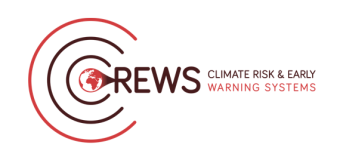
- Climate Resilience and Adaptation
- Disaster Risk Reduction
- Global Framework for Climate Services
- WMO Integrated Global Observing System
- Capacity Development
- Governance
Project background
West Africa is one of the most vulnerable regions to climate variability and change as it is exposed to climate shocks and stresses and has relatively low capacity to adapt. Hydrometeorological hazards, including droughts, sand and dust storms, flash floods and heavy rainfall result in loss of life and property.
Outputs
The main objective of the CREWS West Africa project is to strengthen regional entities to engage with the national hydrometeorological agencies in the region to improve risk information and early warning services at national levels.
The project aims to develop capacities within the existing regional institutions in line with their mandates. Some of these institutions are listed below:
(1) AGRHYMET (CILSS) for training, food security and Regional Climate Services (future RCC)
(2) Regional Specialized Meteorological Centre (RSMC) Dakar (ANACIM) for severe weather forecasting
(3) Global Information System Centre (GISC) Casablanca
(4) National Meteorological and Hydrological Services (NMHSs) to provide support in activities that are cross cutting such as Flash Flood Guidance System (FFGS), Coastal Inundation Forecasting Initiative (CIFI), Severe Weather Forecasting Programme (SWFP) and Sand and Dust Storm Warning Advisory and Assessment System (SDS-WAS)
The beneficiaries include the 19 Members of ECOWAS and PRESASS, namely, Benin, Burkina Faso, Cameroon, Central African Republic, Cape Verde, Chad, Côte d'Ivoire, the Gambia, Ghana, Guinea Bissau, Guinea Conakry, Liberia, Mali, Mauritania, Niger, Nigeria, Senegal, Sierra Leone and Togo.
Expected outcomes
The project is structured around four expected outcomes:
- Data coherence and country-level access to enhanced forecasts
- Strengthened regional monitoring and forecast systems on multiple timescales, prioritizing those relevant for severe weather and flood early warning and for reducing agriculture and food-security related risk
- Broad base support offered by the regional centres strengthened through twinning arrangements with the European RCC network
- Better contribution of NMHSs in early and rapid warning processes
Collaboration with AGRHYMET
As part of WMO support to the ongoing AGRHYMET RCC accreditation process, the following tools are being developed through the project:
- Data Management
- Extreme Events Archiving
- Harmonized early and rapid warning procedures
- Climate Watch
- Severe Weather Forecasting
- Flood Forecasting
- Sub-seasonal & seasonal forecasting
- Agricultural Drought Monitoring
- Region:
- Region I: Africa


